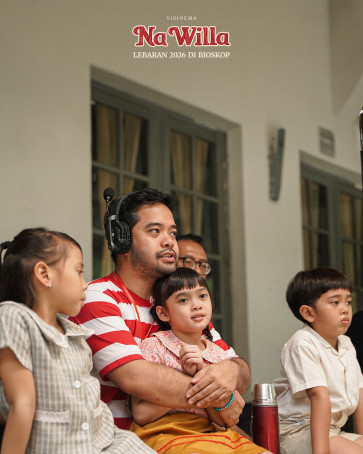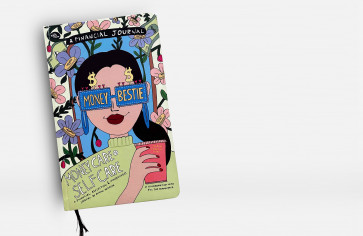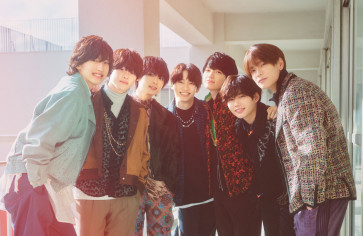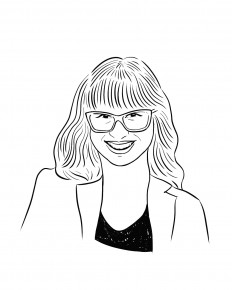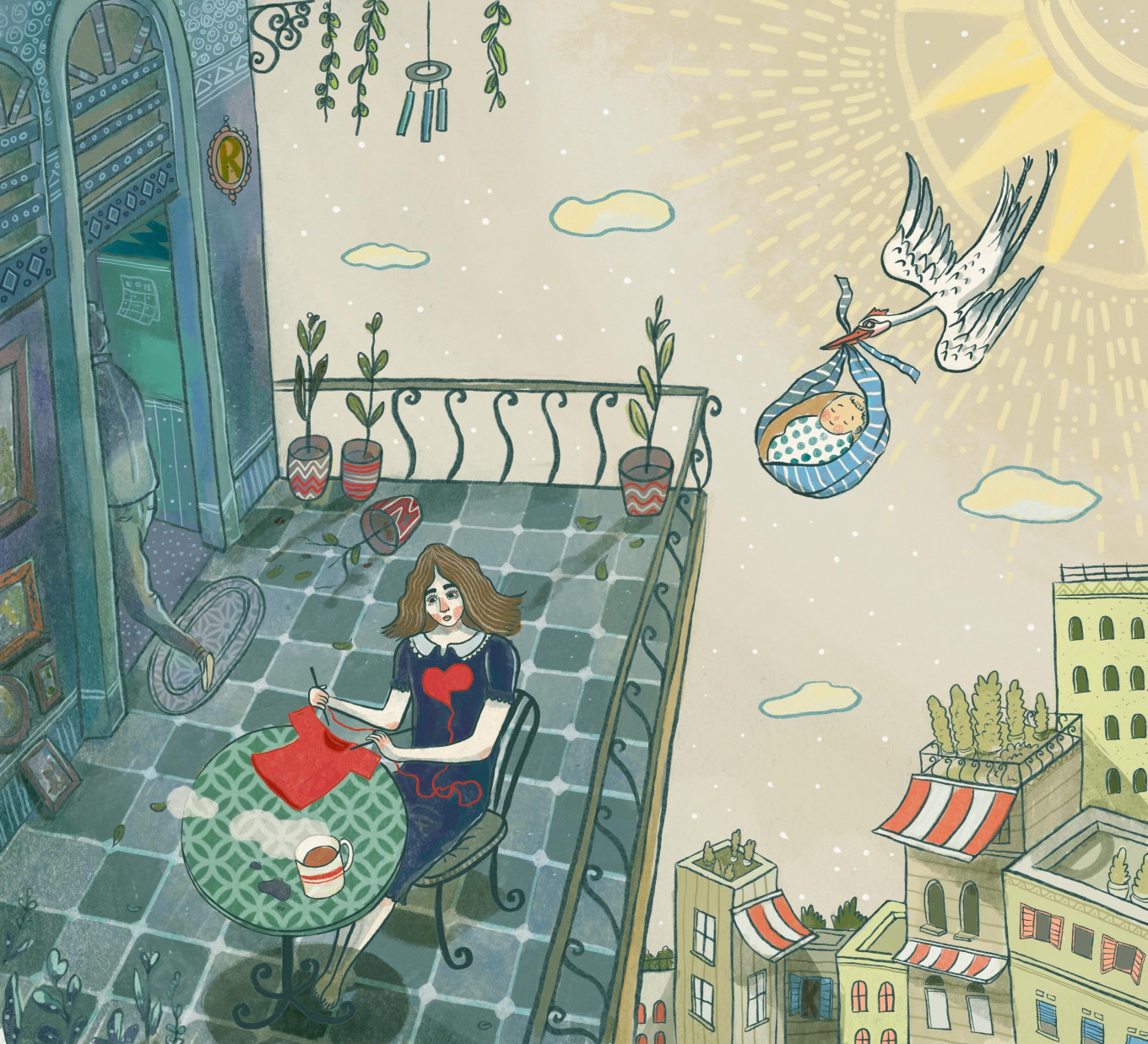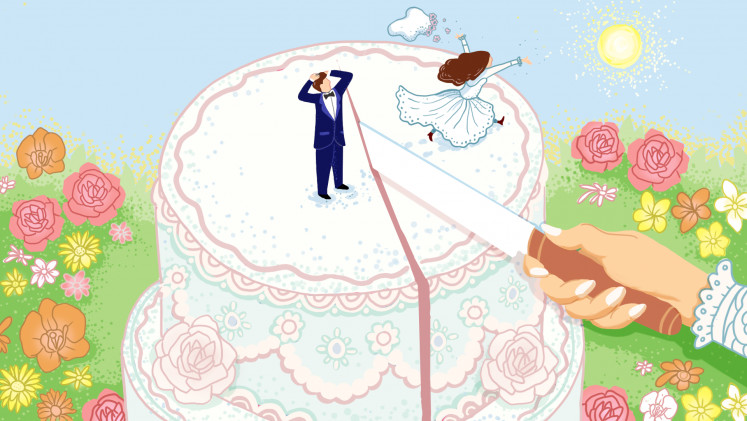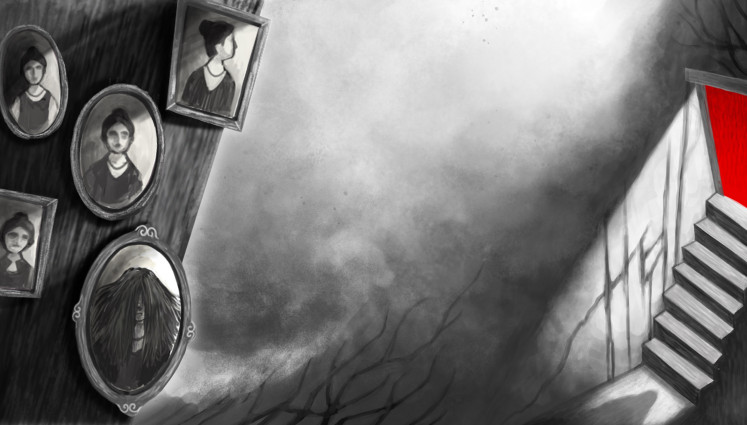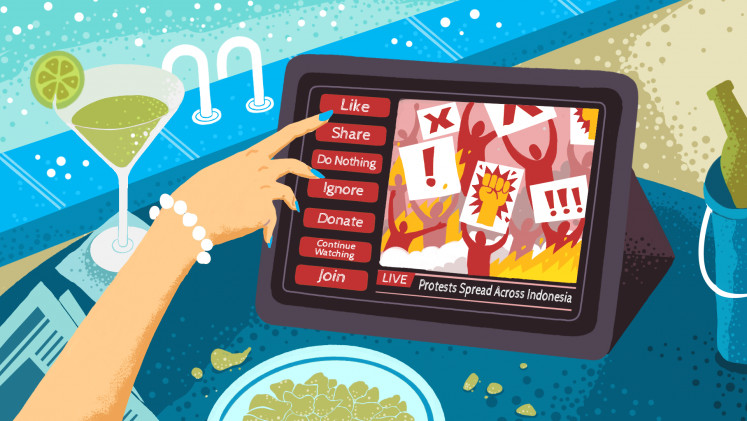I never wanted to be a mother. In fact, I never particularly liked children.
But I was fertile.
And so when a pregnancy stick revealed two lines five months after I got married, everyone around me was more excited than I was.
In March 2020, my daughter was born. I said goodbye to my pre-baby self and added “mother” to my resume.
I never wanted to be a mother, so I wasn't aware that the title came with an endless job description, a long list of required skills (upgrades not yet included) and unrealistic expectations from both society and myself. It’s a never-ending cycle of tasks—24/7, 365 days a year, year after year—without an official pause button.
My daughter means the world to me, but honestly, motherhood is intense.

Thank you!
For signing up to our newsletter.
Please check your email for your newsletter subscription.
Birth of a new identity
“Initially, naively, I thought that after the pregnancy was over, then, I could go back to being me, given some time to adjust,” says Nalindra Pelekai, 42, a mother of a 4-year-old daughter who is currently expecting a second child.
The realization that I can’t return to my pre-baby self hit hard. A few weeks after I gave birth, my 16-year-old orange cat died. I cried. And cried. But I wasn’t just mourning my pet, I was also mourning a part of me that can no longer be.
I felt like a blind larva, elongated and round with nowhere to go. I was miserable, but I also had to step up and take care of this tiny and helpless baby girl in my arms.
After years of trying to cling to her old self, Nalindra accepted that she could never return to “Nalindra, the OG version” and was able to move forward.
“You turn into a whole new person, bringing some of the old personalities. You evolve and have more identity. It’s a beautiful thing, an evolution,” she reflects.
This new identity does not magically emerge overnight. At least not for all.
There is one change that happens almost immediately, which is the physical transformation our bodies go through for the miraculous process of creating life.
And yet, new moms now face a “bounce-back” culture that pressures them to return to their pre-pregnancy bodies as soon as possible, subtly delivered by ostensibly well-meaning compliments like “You don’t look like you’ve just had a baby!” or “You lost your baby weight so fast!”
It’s now common for new mothers to use stagen (corsets) for hours each day, sometimes for months, to shrink their waistlines, when they should be focused on resting, healing and bonding with their babies.
But this is just one of the many unrealistic pressures mothers face.
Nurtured skills, not nature
“Once you hold your baby, you’ll know how to be a mother. Motherhood comes naturally.”
For me, it definitely did not.
My husband, who had to care for his baby brother at 14, knew more about how to “mother”. He knew how to change a diaper, whip up a toddler-friendly breakfast and make a crying child laugh.
Meanwhile, I was left wondering when my maternal instinct would kick in.
Psychology Today calls this so-called instinct a myth, a narrative created to ease women’s fears of not measuring up. But it shapes a belief that women are born to be mothers and will effortlessly and gracefully raise kids.
In truth, mothering isn’t a one-size-fits-all endeavor. From breastfeeding to finding the right school to even figuring out how to behave when meeting your son’s girlfriend for the first time, every mom, child and family situation is different.
Instead of being an instinct, mothering is a skill that you have to sharpen constantly.
Even Taruli Karlina, 43, a mother of four, who could probably earn a Master’s in Mothering if such a program existed, believes in adapting and educating herself through online articles, parenting videos and discussions with unconventional sources.
“We always have to upgrade ourselves as parents,” Taruli says. “I can’t learn alone.”
Putri Emelli, a 34-year-old single mother with a 4-year-old daughter, has a unique parenting hack that comes from within. For her, the first step is to re-parent herself.
Basically, if you don’t do your homework, you won’t become better.
Tick, tock, the clock is ticking
In theory, the wealth of parenting resources available should make it easier for mothers, whether working, single, or stay-at-home, to do their homework.
“Yet, at the same time, these advancements can also increase expectations and become additional pressure that previously did not exist,” says Grace Sameve, a counselor at the International Wellbeing Center in South Jakarta.
Amid the plethora of information we have to sift through and learn and adopt, society’s age-old belief that mothering comes naturally to women hasn’t changed.
The unspoken expectation that comes with this belief is that a mother should basically be perfect: Able to do everything all at once without complaint or rest.
This unrealistic expectation makes me feel like my head is about to explode. I feel like I’m always running out of time. To be a good mother and wife, I have to maintain a clean house, prepare top-notch school snacks, organize the best vacation and do endless chores with no complaints.
Otherwise, guilt creeps in and self-worth crawls out.
But everything can’t be and shouldn’t be all imposed on mothers. Yes, we can mother, but not everyone, not alone, not perfectly.
“Perfectionism is one factor that might affect a mother’s mental health,” Grace explains.
“First is from the expectation that they put on themselves. The second type is the expectation that they think other people put on them.”
Most mothers are caught in a constant rush: Planning playdates, paying bills, putting kids to sleep, organizing family events, the list goes on.
“I could schedule everything but time is limited. I wish there were more than 24 hours in a day,” Taruli says.
Time isn’t bendable, so our schedule needs to be.
“You can do anything, but not everything, at the same time,” Nalindra laughs.
“It's about understanding what needs your attention. Sometimes, you need to work 12 hours a day and then put your child in front of a TV for a while. Other times, you spend time with your child and family, you can cook and put aside work. It's about prioritizing, deprioritizing.”
Dawn of the dads
It might have taken more than a century, but fathers today are far more involved in caring for infants than previous generations. In the United States, some 57 percent of millennial dads wear their fatherhood cape loud and proud as part of their identity, according to a 2023 US study conducted by Pew Research Centre.
“Now, men realize that this generation is becoming fatherless. It’s a cycle that they are trying to break,” Grace elaborates.
“They are trying to step up and do activities that were previously performed only by mothers.”
Has this trend reached Indonesia? There are no studies yet, as far as I can tell.
One weekend, in the midst of the usual chaos, my husband asked, “What can I help you with?”
The very question, though well-meaning, revealed something unspoken: That everything, from childcare to home management and the mental load juggling all of that entails, still falls on me.
The first step to changing this dynamic is to redefine what “our” responsibilities are. Buying groceries, washing bottles, picking out school clothes; sharing these seemingly small, mundane tasks can make a big difference.
For Nalindra, it’s all about teamwork. “We divide and conquer as needed. In the first two years, we were always moving around, but now we’ve found our groove. We dance around each other without setting specific roles.”
When both partners contribute without relying on gender roles, mothers can recharge and do the things they need to do to reshape their identity apart from being mothers.
Motherland, motherload
Imagine running a race with a weight attached to your ankles.
That’s what motherhood can sometimes feel like with all the responsibilities you have to carry on your shoulders. The unrealistic expectations around you then add more weight on top of your head. And with your career, health, personal dreams and goals often pushed to the bottom of your priority list, you carry the weight of these burdens like a heavy load in your stomach.
Motherhood is messy, exhausting and often thankless. It takes over our identity and our priorities.
But we continue to run, however slowly. It’s difficult, but we won't stop trying.
Because it’s also rewarding. My silver lining comes when I’ve been working for days and hardly see my kid. That's when my husband sends me a selfie of them having fun at the mall. That feeling of missing out makes me realize how much I want to spend time with them.
For Putri and Taruli, their sliver of joy is simple: Eating ice cream with their kids.
I never wanted to be a mother, but I am one now. I just hope the village around us mothers realizes that they can make our jobs a bit easier by sharing the burdens and not adding to them with unrealistic expectations.
“Mother” is our title because biologically, we carry our children. While women become mothers through childbirth, it’s the difficult act of mothering that truly defines it. And it need not be just a woman’s job.
The role is for everyone with a nurturing skill; everyone can do it if they’re willing. After all, the world will be a better place if more people act as mothers.
Ninda Daianti is the associate editor at The Jakarta Post’s The Weekender, a writer and instructor. Other than all-things storytelling, she is obsessed with cleaning and working out.






